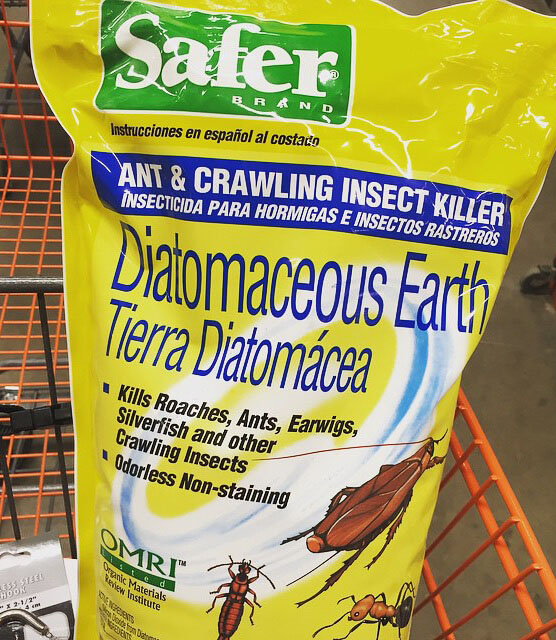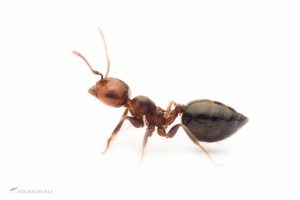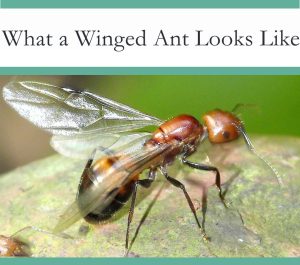How to Get Rid of Ants in Your Garden
October 11th 2019, by Dan Crosfield

Everything in nature has its place. Ants are no exception. Ants are actually vital to the health of the ecosystem, both in the wild and in your garden. As highly successful omnivores (which means they eat almost anything) ants help to keep down the population of other insects that can harm your plants. They also perform an essential role in breaking down decomposing matter. So a completely ant-free garden would be an unhealthy garden.
That doesn’t mean these critters are necessarily your best friends, though. When the population in your vegetable garden or yard gets too large, ants can do more harm than good. For one thing, certain species will feed on your plants and can wreak havoc in your vegetable garden. For another, ants can often encourage the presence of other harmful insects, such as aphids. Finally, some species of ant defend their nest aggressively and can bite or sting you if they feel threatened. Besides, no one wants that beautiful lawn marred by dozens of ant hills.
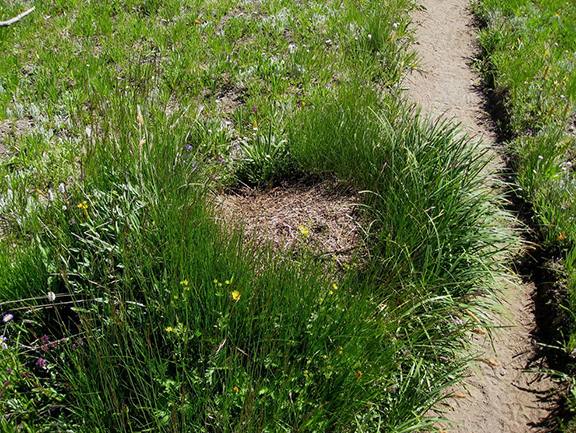
Fortunately, there are a few remedies you can use to get rid of ants naturally. Here are some things you can try:
Get Rid of Aphids
Aphids are small soft-bodied insects that feed on plants. Specifically, they use their needlelike mouthparts to suck the sap from plants. Also known as greenflies, aphids can cause a lot of damage to vegetation in your garden.
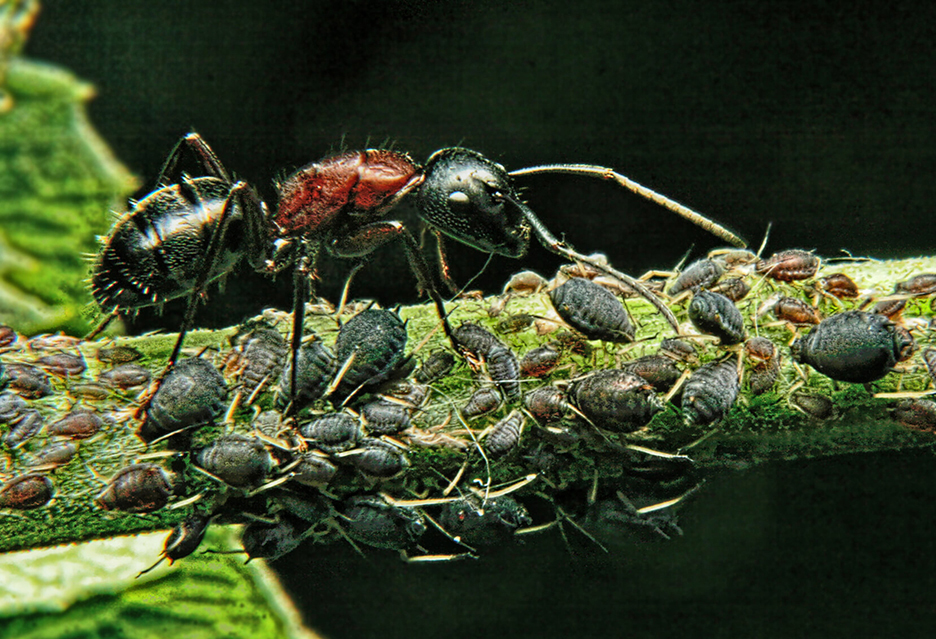
Aphids also attract ants. But if you were hoping that the ants might get rid of the aphids for you, you’re out of luck. Ants and aphids have an unusual and long-established relationship with one another.
Ants stroke the aphids with their antenna, which causes the aphids to secrete a sugary substance called honeydew, which the ants then eat. In return, the ants protect their aphid buddies from predators. Aphids represent a significant outdoor food source for many types of sugar feeding ants, so the fewer aphids in your garden, the fewer ants you will have.
You can treat plants that are harbouring aphids with a solution of water and dish soap. Spraying the plants with this mixture will make it impossible for the aphids to cling on to the plant. And once they are dislodged, they will be unable to find their way back to their food source. This will not only protect your plants from aphid damage but will also reduce the number of ants on your property.
You can also treat aphids with insecticidal soap. Since aphids are so tiny, with adults less than 1/4 of an inch in length, you may have to look carefully through your plants to find. Often, it’s easier to look for signs of the damage that they do to plants. Curling or yellowing leaves are a common sign of aphid infestation, as are leaves and stems of a plant being sticky thanks to the honeydew they secrete. Remember to check the underside of plant leaves for aphids, as they often like to hide there
Use Diatomaceous Earth
When you find ants marauding through your garden, another way to deal with them is by using diatomaceous earth. This fine white powder is available in hardware stores everywhere. Although it’s a very effective ant killer, it’s not actually a pesticide. Instead, this powder is a physical control that won’t harm you or your family and can be safely used on your vegetable patch.
Diatomaceous earth is made up of tiny shards of fossilized sea creatures. When insects crawl over this powder, the jagged edges of the microscopic shells lacerate their bodies and cause them to dehydrate and die.
Spread diatomaceous earth around the base of plants, and anywhere you’ve seen ant activity. If you find a nest, sprinkle the powder liberally around the area. Diatomaceous earth is unlikely to destroy an ant colony completely, but it will dramatically reduce the number of foraging workers in your garden.
Make sure not to spread too much diatomaceous earth around, though. You should spread enough that it’s visible in the areas you’ve applied it, but don’t create big piles of it. No insect will walk through a large mound of dust, and the powder will simply end up blowing all over yours and your neighbour’s yards.
Poison Them with Borax
You may not like the idea of using poison in your garden. But don’t worry; borax is a naturally occurring mineral that has been used for generations as a laundry detergent. However, Boric Acid is also a potent stomach poison for insects. If you want a more long-term solution to your ant problems that still doesn’t involve the use of harsh chemicals, this is an excellent method of pest control.
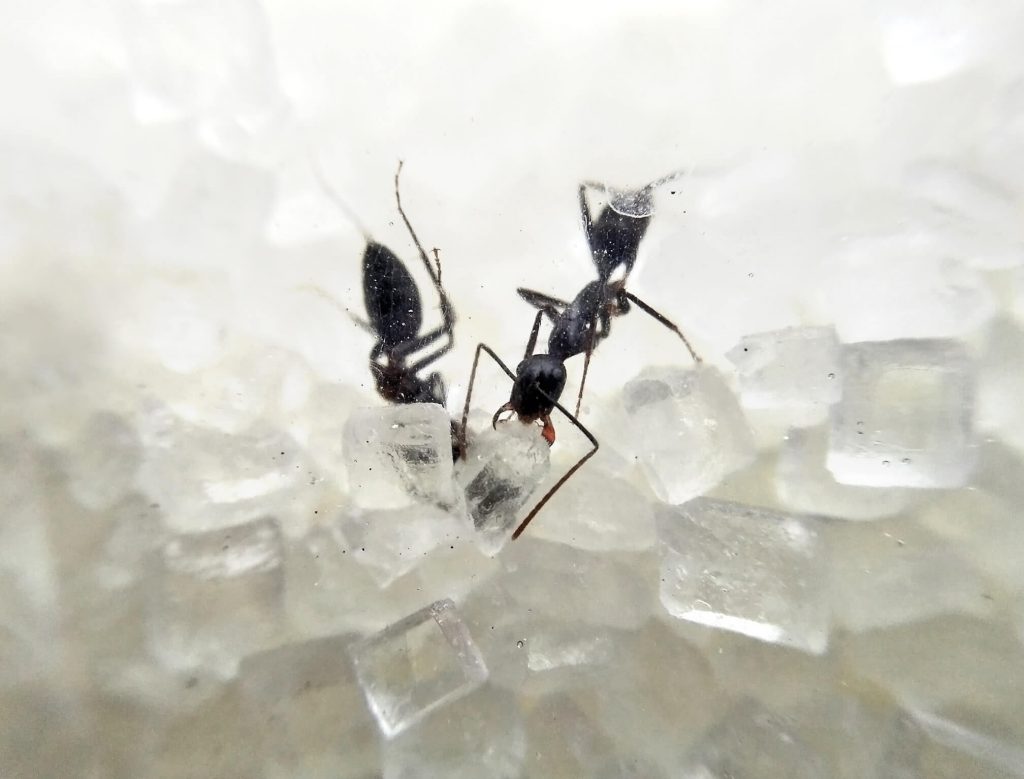
Mix the borax with powdered sugar at a ratio of one part borax to three parts sugar. Set this mixture out in your yard, especially in areas where you have seen ants foraging.
The idea is that the foraging workers will find the sweet mixture and carry some of it back to the nest. There, they will feed it to the juveniles and the queen. Over time, the poison will spread to the colony and kill off these creatures.
It’s a good idea when using this method to place the bait in some kind of bait station, especially if you have pets. Ingesting a little bit of borax won’t harm your dog, but it’s still something you should try to avoid if possible. Old bottle caps can make handy homemade bait stations. Alternatively, you can dissolve the borax and sugar in water and use cotton balls to soak up the water. The insects will suck the sugary liquid right out of the cotton balls, but non-target animals will be safe.
Reduce Sources of Water

All animals need water. For that matter, so do the plants in your garden. So gardens can often be a good source of water for insects. One way to make your yard less attractive to ants is to reduce the sources of water they can find in it.
Check outdoor faucets and hoses for leaks. Also, check your gutters and drainpipes to see if water collects in any specific areas of your yard. Many of these creatures like to build colonies in areas of high humidity, and if your garden is getting more water than it needs, you are inviting ants to build a home on your property.
Get Rid of Rotten Wood
Is your fence showing its age? What about that woodpile that’s been sitting for years? To you, these may look like nothing more than pieces of weathered wood. But to certain ant species, they make an ideal home.
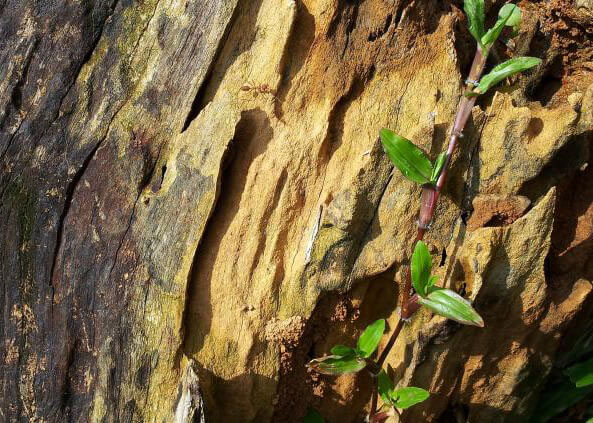
Damp wood, especially wood in contact with soil, makes an excellent nest for moisture ants. This widespread species loves to excavate galleries in which to lay its eggs through wood softened by water damage. They often found nesting at the bottom of fence posts or sheds. Additionally, wooden planter boxes or railway ties also make great locations for them to establish a territory.
The same goes for carpenter ants. This large species, with its powerful jaws, doesn’t even need the wood to be rotten. They are fully capable of carving out a nest in a solid piece of wood. But if the wood is rotten, their job is that much easier. In the wild, carpenter ants but also crazy ants play an important role in breaking down dead trees, and can often be found nesting in old tree stumps. But they don’t know the difference between a forest and your home.
The best way to ensure that you never have to deal with these creatures is to make your garden less attractive to them as a nest site. Get rid of any rotten wood you can find, and pay particular attention to areas where wood is in contact with soil. Remove old stumps and decaying fence posts. If you have a woodpile, try to keep it far away from your house to prevent these creatures from coming inside. It’s also a good idea to keep it off the ground if possible.
Herbal Remedies
The Internet is an amazing tool, but it also has its fair share of garbage. When it comes to pest control, there’s a lot of herbal remedies recommended for use against insects with very doubtful claims behind them.

However, some herbal remedies really do work to repel ants. As you can see in this study, many household ingredients will have a repellent effect on these creatures.
A bug’s life is dictated largely by chemical signals in its environment. It’s these signals that tell insects where to find food, where to find shelter, where to find one another, and how to avoid danger. So it makes sense that any chemical which disrupts these signals will have a negative effect on the bugs. They also have the advantage of being completely natural and completely harmless to humans, pets, and your plants.
The most effective way to use herbal extracts against insects is by mixing them with water and using them in a spray bottle. This way, you can spray the mixture around any plants you want to protect, creating an invisible barrier against insect infestation. Remember that these mixtures aren’t intended to kill bugs, but to repel them. This way, you can protect your vegetable garden or prize flowers from the ravages of these tenacious bugs.
Cucumber mint, lemon garlic, and garlic mint mixtures are the most effective natural ant repellents. Mixing these extracts in water at a 10% concentration achieved a 100% repellent effect on the insects in a laboratory study. Also, they all sound delicious. And they’re completely harmless to use.
Pour Boiling Water on Nests
Sometimes, the simplest solutions are the best. And while herbal repellents and borax-based baits can provide effective and long-lasting control, you may want quicker results. Pest control methods don’t get more eco-friendly and low-tech than this one, but there’s something very satisfying about taking matters into your own hands.
Some ant nests are more obvious than others. Certain species build visible hills that you will see popping up in your grass or around paving slabs. If you start to see these sandy mounds, you know there’s an ant nest beneath.
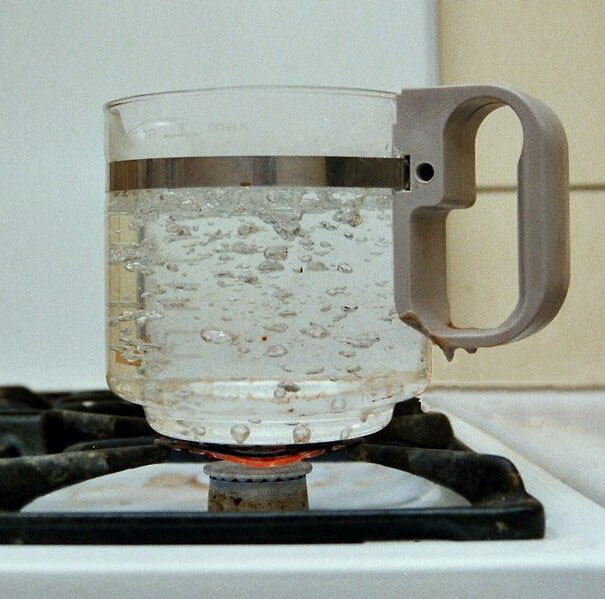
Pouring a pot of boiling water directly onto the nest can be a surprisingly effective way to battle a colony. Boiling water will kill insects on contact. It will also penetrate deep into the nest to wipe out not only foraging workers but also the eggs and larvae they depend on. Of course, colonies are built to survive occasional flooding, so there’s no guarantee that you’ll reach the queen by this method. But you will almost definitely kill a lot of bugs and severely slow their population growth.
This method works best if you perform multiple applications over a few days. In this way, you can either completely destroy a nest or damage it so much that the insects will no longer be a problem for you or your garden.
But be careful when using this method. Boiling water doesn’t need to touch you to scald you. Make sure to protect yourself, especially your arms and hands, while pouring out the water.
Also, be aware of what type of insect you’re dealing with. One creature that builds very visible and obvious mounds of soil over its nest is the fire ant. As the name suggests, these guys are capable of delivering a burning sting, and they will defend their nests aggressively. Start pouring boiling water on one of these mounds, and the creatures inside won’t hesitate to swarm you in a painful counterattack. If you have fire ants in your yard, it may be better to stay away from this method of pest control completely.
Other Pest Control Methods
If you’ve tried the natural approach and found it isn’t working for you, there are other options. Commercially available pesticides can help to get rid of bugs in your garden quickly and safely. But it’s best to try less environmentally harmful methods first. Only if these fail should you reach for something a little more toxic.
Commercially available baits are a good place to start. Just as with the borax mixture mentioned above, these products allow the insects to do most of the work in finding the food and bringing it back to the nest. The poison is designed to work slowly, but once it spreads throughout the colony, it’s game over for the ants. When baiting outside, be sure to use outdoor stations like these. They are designed to keep the bait from drying out even in hot weather, and they can be staked into the ground to make sure that no other animals carry them away.
Another option for outdoor baiting is a granular bait. These are especially useful against fire ants since you can broadcast the pesticide around their highly visible mounds. Granular baits are generally too small to be picked up by anything other than insects, so you needn’t worry about the pesticide having adverse effects on local wildlife or your pets. However, you may need to reapply granular baits after rain.
Finally, there’s always a good old-fashioned pesticide spray. There’s nothing subtle or targeted about this kind of treatment. Using a handheld or backpack sprayer, you spray the mixture around your home and garden, paying particular attention to areas where you’ve seen foraging workers or nests. Sprays like this not only kill the bugs on contact, but can also provide residual protection, meaning they continue to kill insects long after they’ve dried. When you’ve tried everything else, sometimes the nuclear option is the only thing left.
Conclusion

Insects belong in the garden. And it’s neither possible nor desirable to try and eradicate them all. The health of your plants depends on the delicate balance of insect species in the environment.
But when that balance is lost, and ants become a problem in your garden, there are plenty of methods you can use to control them. Getting rid of aphids, using diatomaceous earth or borax, reducing water sources and rotten wood, herbal remedies, and boiling water are often all you need to get rid of these creatures in the most effective and environmentally friendly way.
